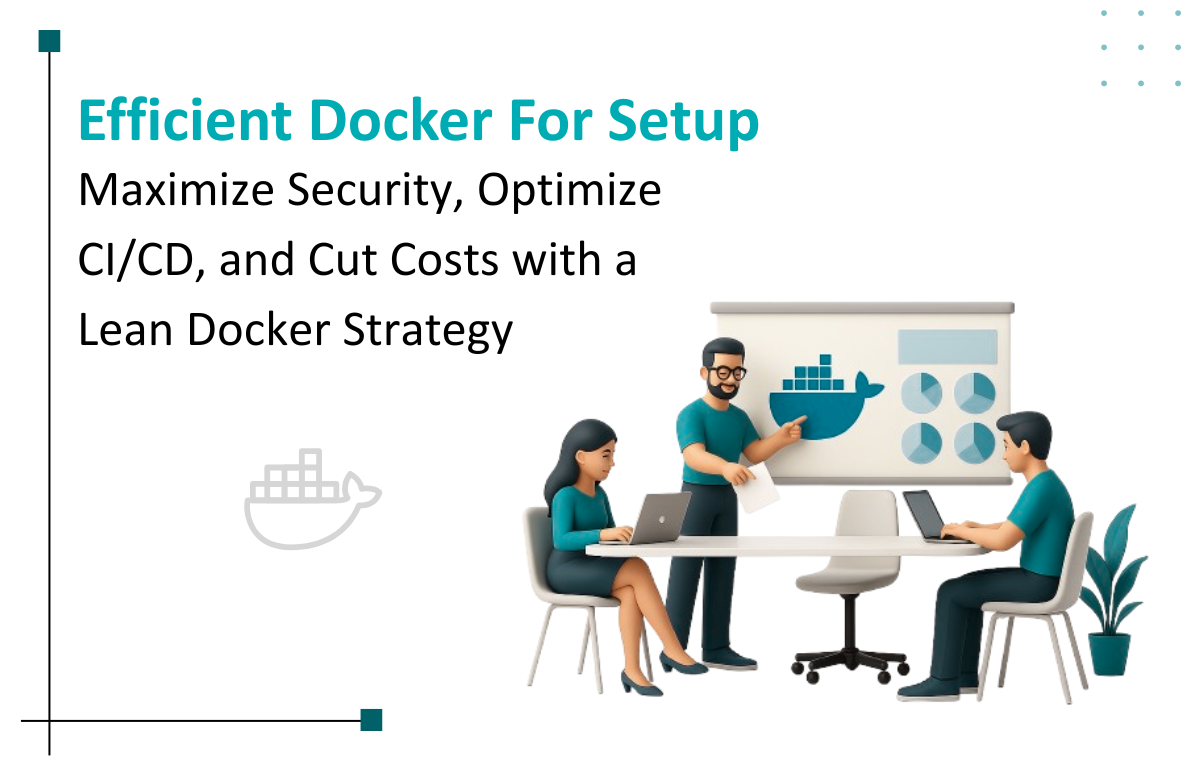
For startups, Docker is a cost-effective solution that optimizes resources by using containerization technology. It allows businesses to package applications and run them consistently across different systems without costly infrastructure. Docker for startups reduces hardware needs and helps teams deploy applications faster, cutting down on time and expenses.
With Docker, small businesses can scale efficiently while keeping overhead low. It’s a resource optimization tool that minimizes troubleshooting and accelerates development, making it a key component for bootstrapped businesses looking to grow without large upfront costs. Docker containerization enables startups to focus on innovation and scalability while staying within budget.
Docker is a containerization tool that packages applications and their dependencies into isolated units called containers, ensuring they run consistently across different environments. This eliminates compatibility issues and streamlines development and deployment processes.
Docker for small businesses boosts resource efficiency by enabling multiple applications to run on the same hardware. Containers are lightweight, deploy quickly, and reduce downtime, offering faster deployment and better performance.
Docker also provides scalable infrastructure, allowing startups to scale applications easily without significant overhead. It’s a cost-effective Docker solution that helps startups optimize resources, reduce costs, and focus on growth.
Docker enables startups to run applications efficiently with minimal overhead by using lightweight containers that consume fewer resources than traditional virtual machines. These containers share the host system’s kernel, reducing hardware requirements and costs.
Docker for small businesses offers resource optimization by isolating applications to use only what they need, eliminating waste. Its ability to support rapid scaling allows startups to adapt to growing demands without significant infrastructure investment, making it a cost-effective Docker solution. Minimal investment in Docker ensures that businesses can access the power of containerization without a hefty price tag.
By leveraging Docker, startups can achieve efficiency, scalability, and affordability, focusing on growth rather than infrastructure. Efficient Docker usage enables startups to optimize their existing resources and scale with lower operational costs.
Real-World Use Cases for Docker in Businesses
Businesses are leveraging Docker to simplify deployment, scale efficiently, and reduce costs. For example:
Docker containerization empowers agile organizations with cost-effective solutions for deployment and scaling, making it a go-to tool for businesses aiming to grow efficiently. Docker security ensures that sensitive business data is protected during scaling and deployment.
Optimize Docker with these best practices:
By following Docker best practices, startups can ensure efficient Docker usage, enhance workflows, and scale cost-effectively. Docker security practices, such as container isolation and secure networking, help maintain safe environments.
Docker provides cost-efficiency, scalability, and faster time-to-market for startups. It streamlines deployment, reduces overhead, and enables quick scaling, making it a perfect solution for businesses aiming to grow without heavy infrastructure costs.
Integrating Docker into your tech stack improves scalability and efficiency, helping startups innovate and scale rapidly. Docker for small businesses and Docker for startups are essential for modern startup technology stacks, offering flexibility and agility to support growth and success. Efficient Docker usage ensures that your startup can maximize its resources while scaling cost-effectively.

Business Development Executive